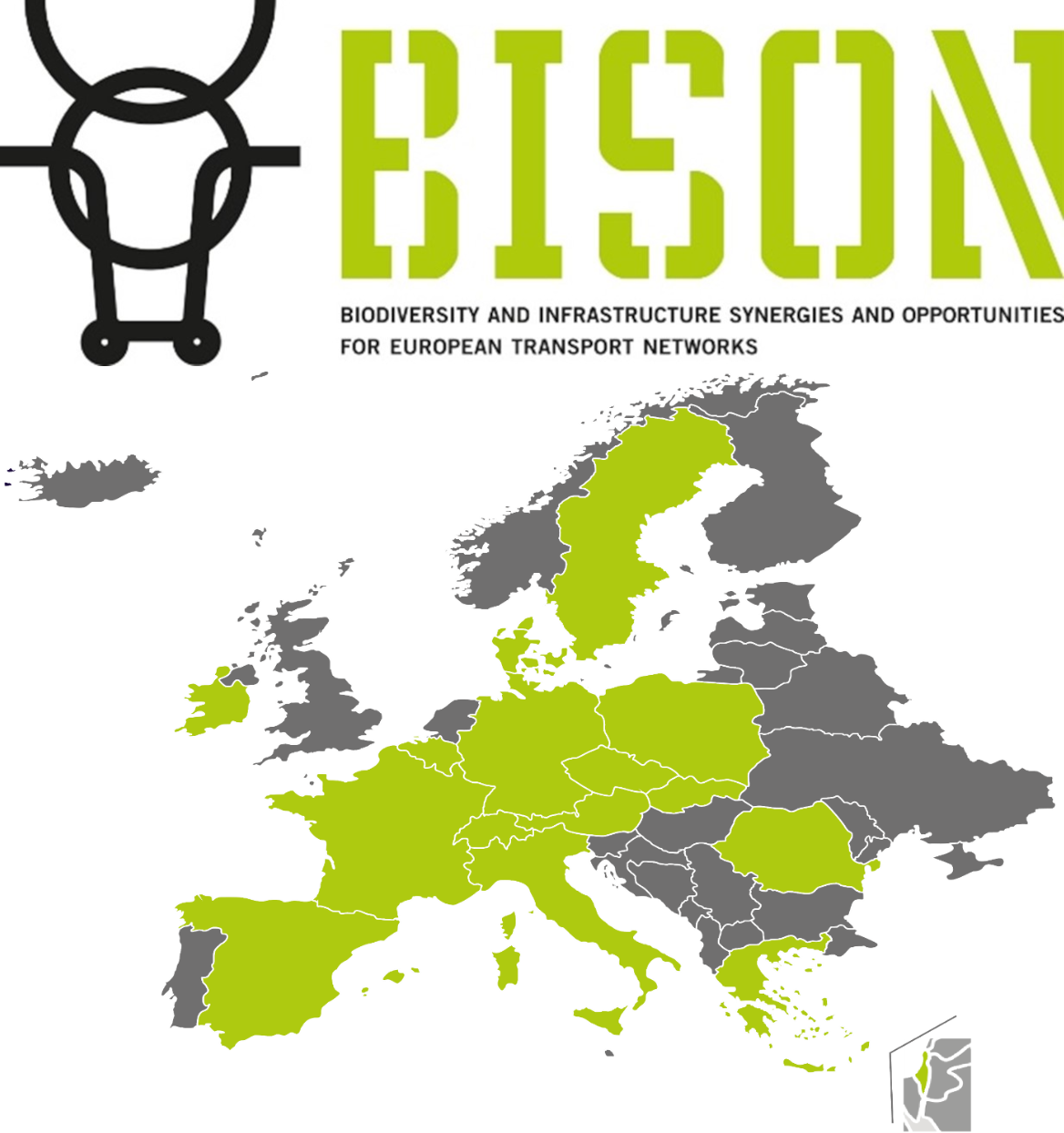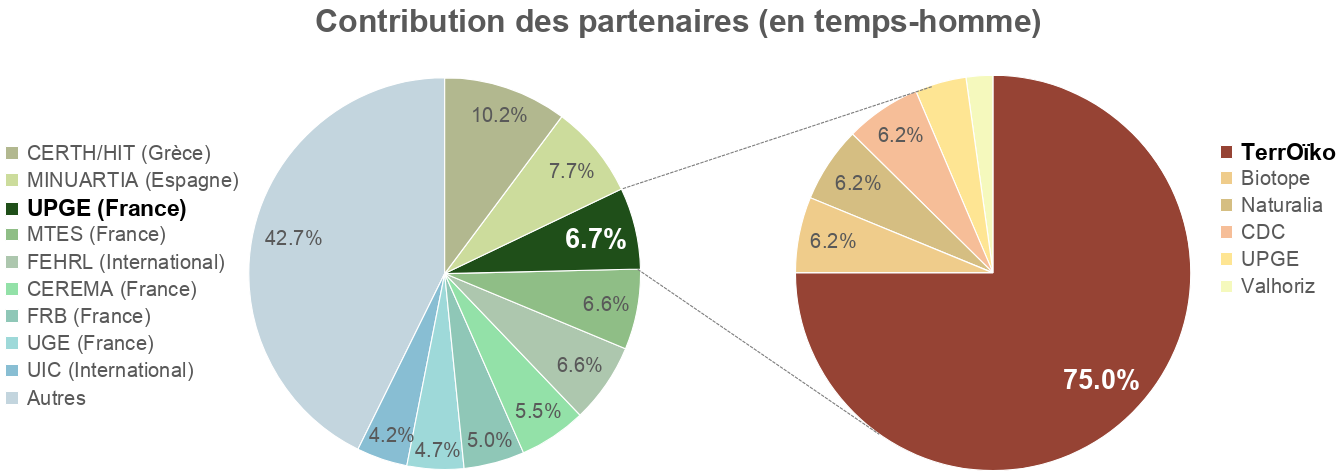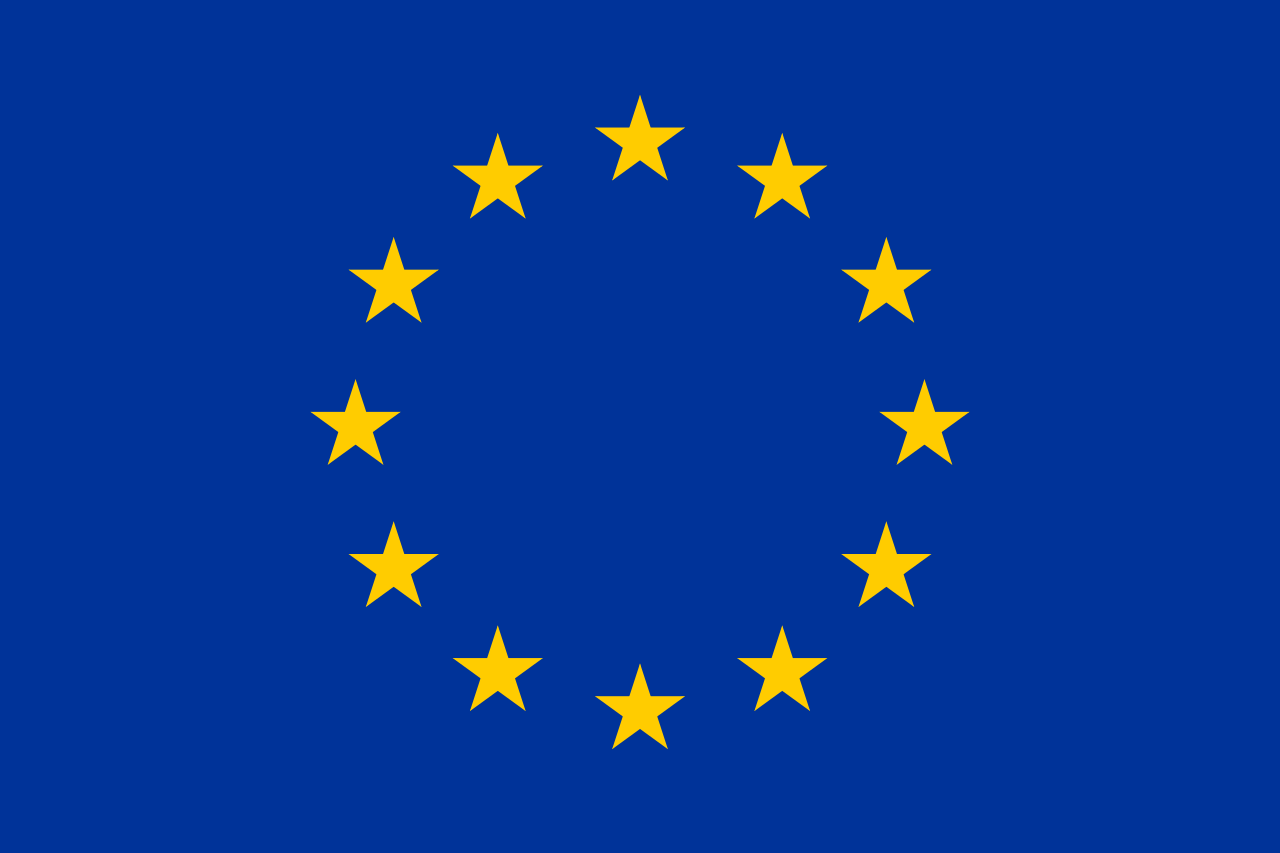 The European BISON project aims to identify ways to reconcile nature conservation with the development of transport infrastructure in Europe. Funded by the EU under the Horizon 2020 program, it involves 44 partners across 16 countries. TerrOïko is one of the main contributors in France.
The European BISON project aims to identify ways to reconcile nature conservation with the development of transport infrastructure in Europe. Funded by the EU under the Horizon 2020 program, it involves 44 partners across 16 countries. TerrOïko is one of the main contributors in France.
The ongoing development of transport infrastructure in Europe (road, rail, river, port, airport, and energy) faces increasingly critical environmental issues: ecosystem fragmentation, decline of local species, spread of invasive species, and extreme weather events (floods, droughts, etc.).
The BISON project aims to establish a European roadmap for research, development, and innovation to improve the consideration of biodiversity throughout the lifecycle of transport infrastructures while making them more reliable and efficient. This is the first project of its kind ("Coordination and Support Action") focused on transport and biodiversity to receive financial support from the European Union, amounting to €3 million
The project specifically aims to:
- identify research and innovation needs to better integrate biodiversity into infrastructure development ;
- detect methods and tools that can be used by various transport modes to reduce pressures on biodiversity ;
- assist EU member states in meeting their international commitments to sustainable development ;
- foster collaboration among European states to lead other countries in the coordinated management of biodiversity and infrastructure development issues.
Contributions
As the leader of the work conducted by the UPGE (Professional Union of Ecological Engineering), TerrOïko is involved in most of the project's actions and plays a key role in connecting various tasks and international working groups.
This strong involvement is reflected in:
- contributions to all project work packages and a coordinating role among different work packages, thanks to our expertise at the intersection of research and operations, recognized across Europe ;
- major contributions to the future European guide for integrating biodiversity into the management of transport infrastructure throughout their lifecycle: we specifically coordinate the chapters dedicated to applying the avoid-reduce-compensate (ARC) sequence and spatial planning ;
- significant contributions to identifying emerging research, development, and innovation needs: we particularly coordinate discussions on the use of nature-based solutions and the emergence of new economic sectors (see deliverable D3.4 below).
- leading the task on the contributions of digital solutions and their convergence for managing infrastructure and biodiversity (see deliverable D3.5 below).
- management the project's geopolitical prospective study ;
- major contributions to strategic documents resulting from the project (Strategic Research Agenda and Strategic Research and Deployment Agenda) that define action plans for fundamental research, innovation, and funding aimed at improving biodiversity consideration in transport infrastructure.

Reports and Deliverables
Deliverable D3.4: Emerging trends and future challenges regarding synergies between biodiversity and infrastructure
This report aims to identify ongoing and upcoming dynamics, examine their impacts on both biodiversity and infrastructure, and propose solutions that simultaneously protect species and improve the sustainability of transport systems. The issues addressed include the mobility needs of human populations, impacts of climate change, emergence of nature-based solutions, species management measures (especially invasive species), consideration of cumulative effects of multiple pressure factors on biodiversity (infrastructure, climate change, etc.), social acceptance of necessary changes, and financing for more sustainable infrastructure.
Download Deliverable D3.4Deliverable D3.5: Use of BIM software and emerging technologies for data standardization and management
This report first provides an overview of data acquisition tools (embedded sensors, Internet of Things, citizen science), automated analysis (artificial intelligence), and modeling. It then aims to define how to make different digital solutions dedicated to biodiversity and infrastructure interoperable, through the development of an operational continuum between GIS (Geographic Information Systems), BIM (Building Information Modeling), and digital twins. .
Download Deliverable D3.5
Follow the project : : Site officiel | LinkedIn | Twitter | ResearchGate
 | Ce projet a reçu un financement de l'Union Européenne dans le cadre du programme de recherche et d'innovation Horizon 2020 - Convention de subvention n°101006661. |

Identity Card
- Call for Research : European Horizon 2020 Program
- Funding : European Union (Grant Agreement No. 101006661)
- Partners : 44 partners across 16 countries
- Contacts TerrOïko : Sylvain Moulherat, Catherine de Roincé
- Project Duration : 30 months (2021-2023)
- Total Project Cost : €3 M
Ressources
- 22/09/2022 : presentation of the main findings of Deliverable D3.5 at the "IENE 2022 International Conference" in Cluj-Napoca (Romania).
- 07/07/2022 : Submission of deliverable D3.4 on emerging trends and future challenges regarding synergies between biodiversity and infrastructure.
- 31/05/2022 : Submission of Deliverable deliverable D3.5 on the use of BIM software and emerging technologies for data standardization and management.